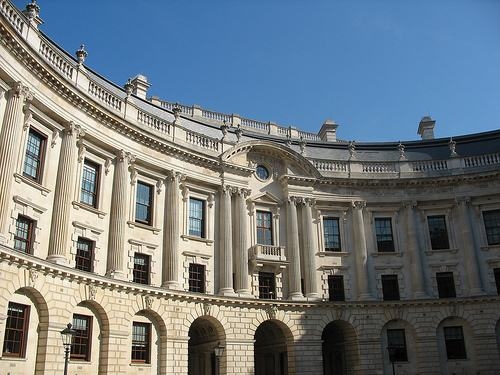George Osborne will deliver the second Budget of 2015 in July in order to make good on the promises contained in his party's election manifesto.
The Chancellor, who was re-appointed after the Conservatives won a majority, said this weekend he would set out the Government's spending plans again this summer.
He is set to give details on a raft of commitments, such as an extra £8bn funding for the NHS.
The Tories pledged to introduce legislation preventing any income tax or VAT rises during the course of the Parliament. This is one of a number of policies expected to be firmed up in the second Budget on 8 July.
The Financial Times today led with the story that Whitehall was braced for 100,000 job cuts over the next three years.
{desktop}{/desktop}{mobile}{/mobile}
In an article he wrote for the Sun at the weekend, Mr Osborne said: "We will protect the NHS and give it more funding each and every year, while making savings across Whitehall.
"We'll crack down hard on tax avoidance and aggressive tax planning by the rich - because everyone should pay their fair share.
"We've got to go on helping businesses create jobs in Britain, so we move towards full employment. That means facing a hard truth: in Britain we produce about a quarter less for every hour we work than countries like America or Germany. Fixing that long-running productivity weakness is the big challenge for the next five years."
Inheritance tax breaks on the family home will be paid for "by reducing the tax relief on pension contributions for people earning more than £150,000", the Conservatives pledged in their manifesto.
Tom McPhail, head of pensions research, at Hargreaves Lansdown, said: "The curtain is coming down on tax reliefs for higher earners and it is now a case of when they lose out, rather than if. Investors who will be affected should make the most of the 45 per cent pension tax relief while they still can; past experience points to the possibility of the door being slammed shut on budget day.
"The government has relatively little room for manoeuvre on raising taxes generally and given that pension tax policy has become increasingly incoherent in recent years, it is an area which is both ripe for reform and which could generate additional revenue for the exchequer. It is quite possible that 40% tax payers could also see their tax reliefs changed as part of a wider restructuring.
"We believe there are more balanced solutions to pension tax relief reform; we urge the government to pause and consider alternative options before making changes which could have negative consequences for all pension savers."
Some of the key points from the Tory manifesto which could also come into play in the Budget include:
• taking everyone earning less than £12,500 out of Income Tax altogether
• passing a law to ensure for a tax-free minimum wage
• Eliminate the current budget deficit and run a surplus by the end of the Parliamentary term
• no raise to VAT, National Insurance contributions or Income Tax
• raise the 40p Income Tax threshold to £50,000
• Raise at least £5 billion from continuing to tackle tax evasion, and aggressive tax avoidance and tax planning
• Continue to increase the Basic State Pension by at least 25 per cent through the triple lock
• Introduce the New State Pension (that one was fully legislated for in the previous parliament)
• Increase the effective Inheritance Tax threshold for married couples and civil partners to £1 million
• Reduce pension contribution tax relief for those earning in excess of £150,000
• Cap charges for residential social care from April 2016 and allow deferred payment agreements
• Preserve pensioner benefits such as the winter fuel payment, free bus pass and TV licence

